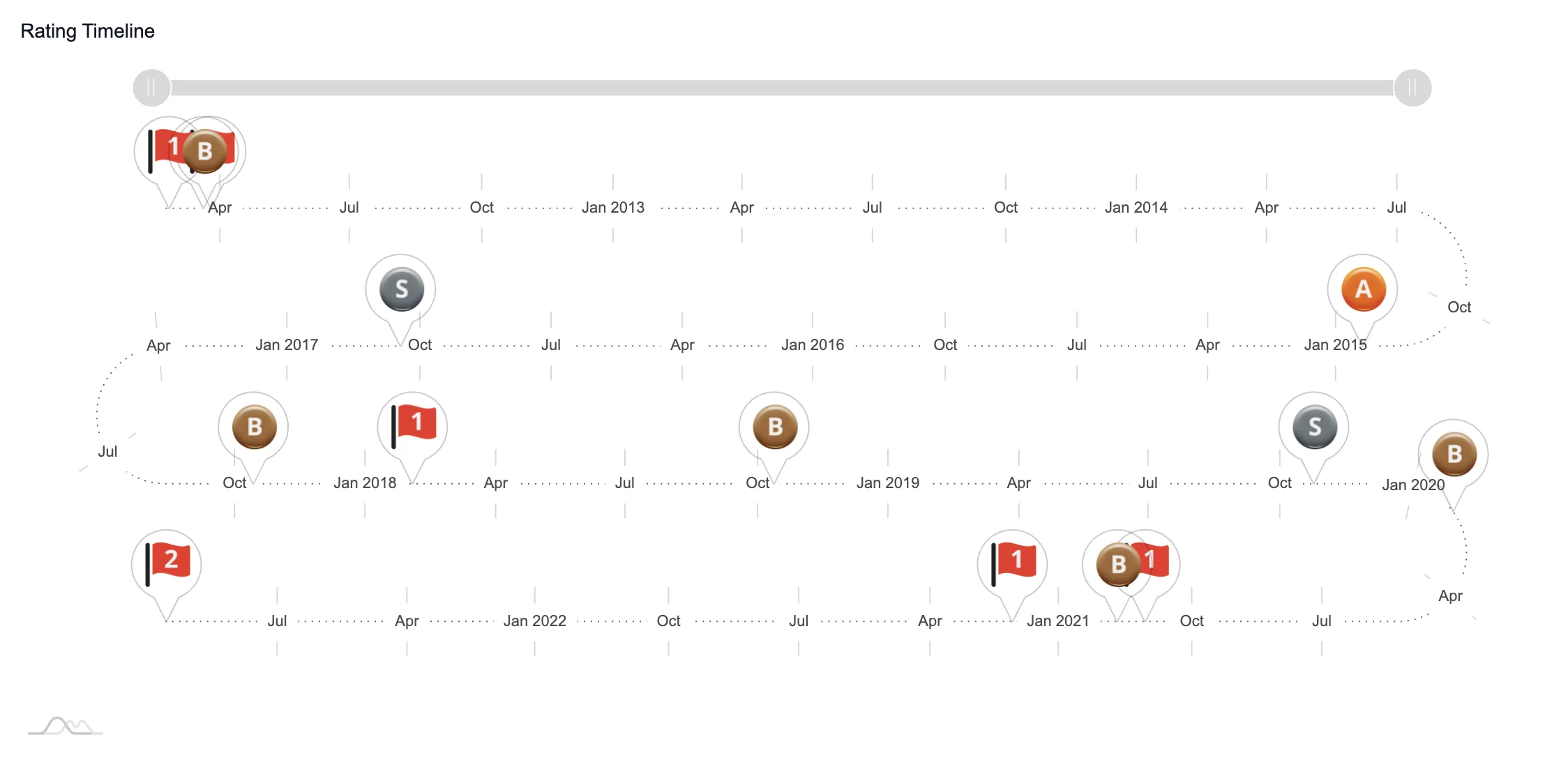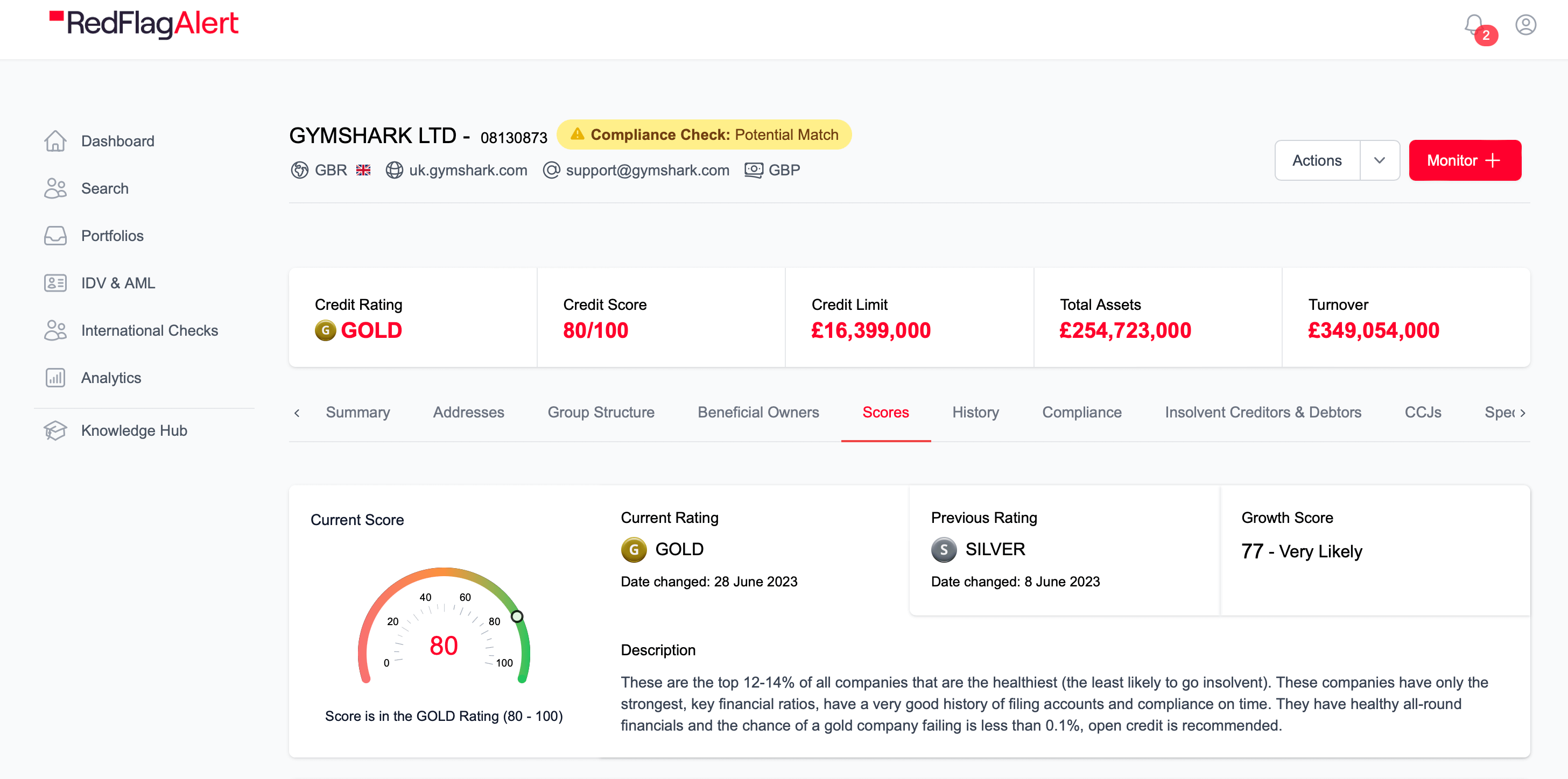As a creditor, there are two reasons why you should be interested in companies on the strike off list.
The first is that if a company that has applied to strike off owes you money, you need to know about the attempt to dissolve the company so you can object and claim on your debts.
The second reason is that sometimes a company will receive a compulsory strike off notice when it fails to file its accounts with Companies House in time. This is a problem that can point to deeper financial problems.
In this article, we investigate the two different types of company strike-offs, what it means for your business if a client is issued one, and what you can do to protect your business.
Types of Company Strike Offs
A company strike off is the process when a business is removed from the Companies House register and it ceases to exist.
There are two main reasons creditors should be interested in companies on the strike-off list.
-
If a company that has applied to strike off owes you money, you need to know about the attempt to dissolve the company so you can object and claim your debts.
-
Sometimes a company will receive a compulsory strike-off notice when it does not file its accounts with company’s house in time. This is a problem that can show a deeper financial problem.
Keeping a close eye on customers can protect your business from financial risks. Below are the two types of company strike-offs.
There are two types of company strike off these are, Voluntary and Compulsory Strike Offs.
Voluntary Company Strike Offs
What is a Voluntary Strike off ?
A voluntary strike-off is when company directors apply to dissolve the company. This will usually be when the company is no longer needed for reasons such as:
- The company has ceased trading.
- The director is approaching retirement.
- The directors have no desire to continue running the business.
Compulsory Strike Offs
What is a Compulsory Strike off ?
A compulsory strike-off is when Companies House forcibly dissolves a limited company or ‘strikes-off’, a company from its record without the directors of the said company requesting this happen. At this point, the company will cease to be a legal entity.
This usually occurs when a business does not follow Companies House regulations which are outlined in the Companies Act 2006. The most common ways companies break regulation include failure to do one or more of the following on time:
- File company accounts
- Pay tax.
- Pay late submission penalties.
- Declare a new company address.
Companies House will contact businesses that don’t comply with the regulations. If they still can’t get the information or payment, they will assume the business is no longer trading. This is when they issue a First Gazette Notice.
This notice is placed in The Gazette when a company receives a strike off request. This notice is to alert other parties and allow them to contest the dissolution of the company. Other parties have two months to object to the notice. When this period is up, the business will be removed from the register.
What Does It Mean When Your Customer Is on the Strike Off List?
When a strike off is implemented, the company no longer legally exists. It will cease to trade and all its assets, if it has any at the time of dissolution, will be given to the Crown.
The process of dissolving a company is only available to companies that are solvent. Before a strike off, the company should take steps to ensure it has nothing outstanding. This includes completing all the work it has been contracted to do and paying any monies owed.
The business owner should also notify all relevant parties about the strike off, including creditors. However, there are occasions when a company either intentionally or unintentionally applies to strike off without informing all parties.
If this happens, the creditor may only find out about the attempt to close down the company when the strike off is listed. If they miss this notice, they may not realise the company has been dissolved until the process is finished.
Once the company has been dissolved, it may be much harder to recover debts.
What Happens If You Object to a Strike Off?
If a company that owes you money has filed to strike off, you can file to object to the strike off as soon as it happens by contacting Companies House and continue trading as normal.
It is also possible to object once a company has been removed from Companies House if it owed you money at the point of the strike off and you were not informed about the strike off. In this case, you must be able to prove that their is outstanding debts.
Why Did My Customer Receive a Company Strike Off Notice?
Occasionally, a company with no intention of dissolving will receive a strike-off notice from Companies House when it fails to file its accounts by a given deadline and it hasn’t organized an extension.
Filing accounts late and ultimately receiving a strike-off notice can be a sign of financial difficulties. However, for some larger companies with poor administration, this is a common occurrence.
If one of your customers has received a strike-off notice, it is a clever idea to take steps to clarify the company’s position, and, if you think there is a chance the company will struggle to pay you, take steps to protect yourself:
- Agreeing more favourable payment terms: either receiving the money up-front or shortening payment time, reducing the amount a company owes you at any one time.
- Including a Retention of Title clause in your contracts will help you repossess any unpaid goods should a company become insolvent.
- Where appropriate, you can cut your losses and stop doing business with the other company.
While the above steps are useful ways to protect your business from a failing customer, it’s important to remember they are only effective if you know about the customer’s problems in advance.
What Are the Consequences of a Company Strike-Off?
A compulsory strike-off is dangerous for multiple reasons:
- The bank will freeze the company accounts while the compulsory strike-off application is active, making trading impossible.
- Being struck off the Companies House register reflects poor business management. This could damage a business’s reputation beyond repair even if they do recover.
- Customers could be alarmed and withdraw their business.
- If someone successfully challenges the application, company creditors may seek to recover their debts from you.
When Companies House dissolves a business, its assets and cash become the property of the Crown. To keep these assets, the business would have to submit a successful objection to the strike-off.
If Companies House upholds the objection to the strike, the business can either continue trading or take the assets out of the business.
All employees will at once be made redundant. They will be unable to claim redundancy pay, as the company has been dissolved with removal from the company's house trading business list.
Red Flag Alert Protects You From Bad Debt
While the above steps are useful ways to protect your business from a failing customer, they are only effective if you know about the customer’s problems in advance.
When a strike off is happening you need to know about it straight away, because if you leave it and the strike off goes ahead it will be difficult to recover any debts you are owed.
Red Flag Alert helps by showing you the financial health of the businesses you work with, ensuring your customers’ financial issues do not catch you unaware. Red Flag Alert provides the following risk management features:
- Red Flag Alert gives every company in the UK a financial health rating. The rating takes into account 142 data points to provide an accurate estimate of how likely a company is to become insolvent in the next 12 months.
- Red Flag Alert makes it easy for companies to set alerts on their system that notify them as soon as a negative event happens to one of their customers. This could be a strike off, CCJ or a winding up petition.
- Beyond the Red Flag ratings, Red Flag Alert provides in-depth intelligence on the businesses in the database, including detailed financial information.
- Red Flag Alert data is updated in real-time from ten leading sources. Over 180,000 changes are made to our data every day, which covers 6.5 million UK businesses.
If you are worried about the financial health of one of your customers and want to see how Red Flag Alert’s company financial risk assessment tool can help your business stay informed with customer's problems in advance, why not Try Red Flag Alert today?





